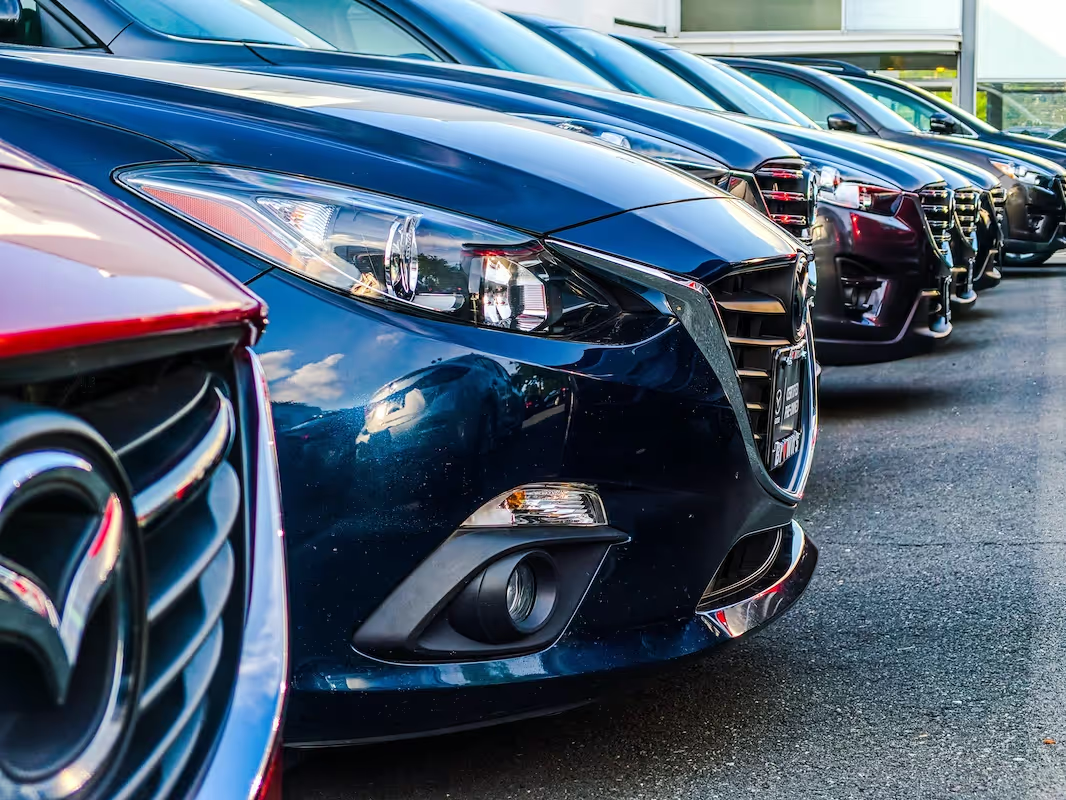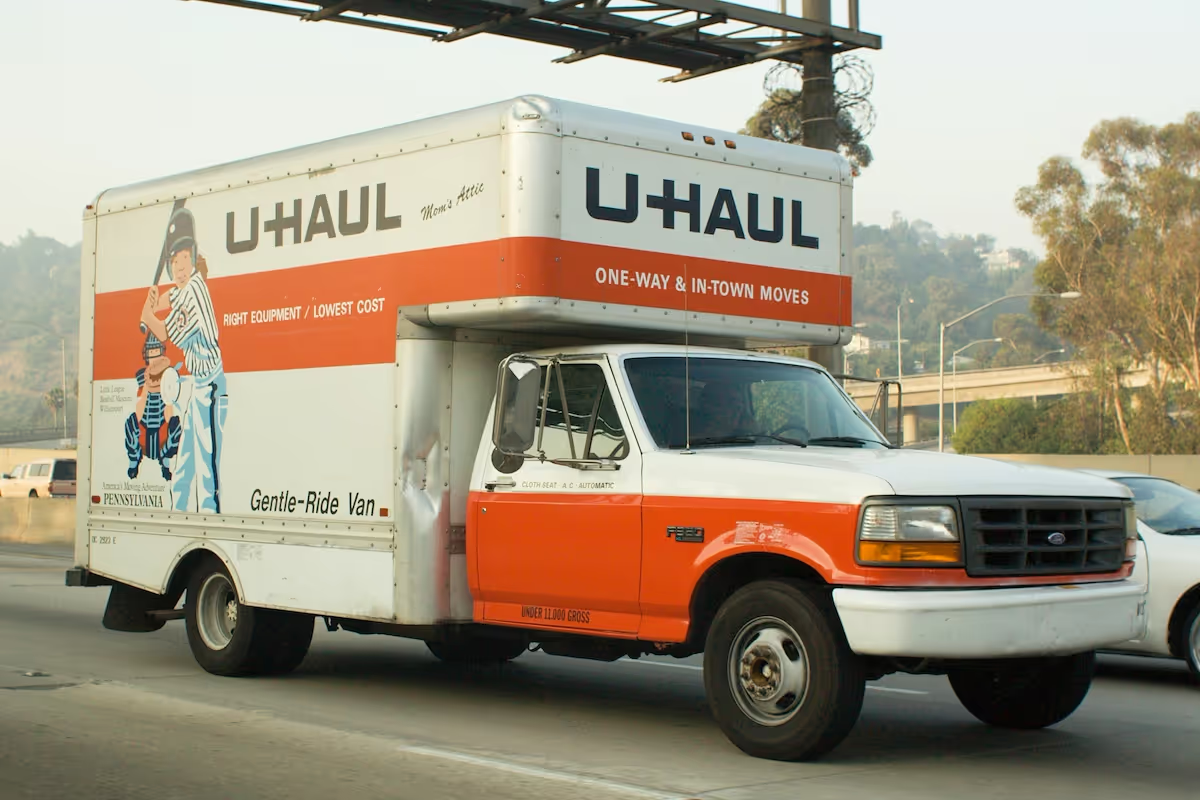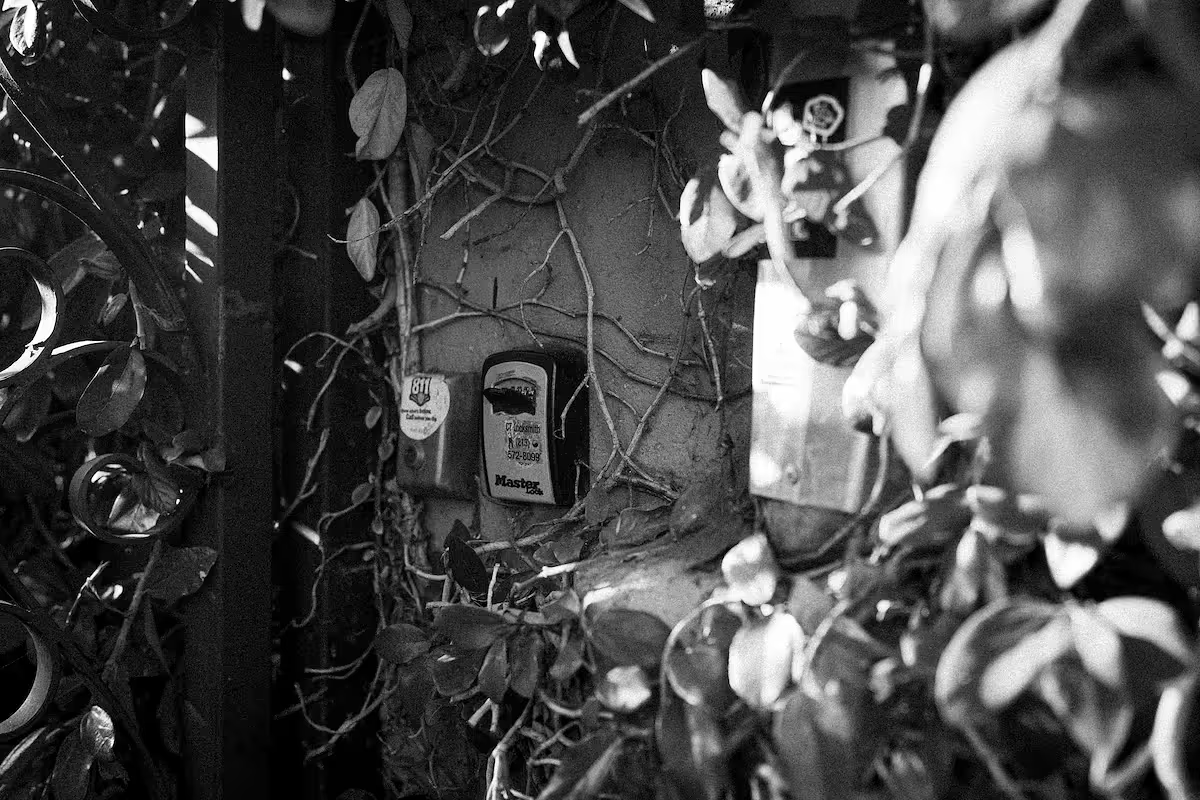Starting a Turo business is an exciting venture that combines a passion for cars and customer service with smart business sense. The car-sharing market is a multi-billion dollar industry, fueled by steady demand from travelers, locals who need a temporary ride, and people looking for a specific vehicle for a special occasion.
This guide will take you through the practical steps of validating your business concept, securing funding, acquiring your first vehicle, and obtaining the necessary permits to help you launch a successful Turo business in the U.S.
Step 1: Validate your market and plan your finances
Begin by researching your local market directly on the Turo platform. Search for your city and see what your competition lists. Note their daily rates, availability, and guest reviews to understand what travelers and locals are actually renting in your area.
Many new hosts buy a car they personally love, not what the market demands. Pay close attention to which vehicles—like reliable sedans or family-friendly SUVs—are frequently booked. This data is more valuable than your personal preference for a sports car that might sit unrented.
Estimate your startup costs
Your primary expense is the vehicle. A down payment on a reliable used car might range from $2,000 to $5,000. While Turo offers protection plans, you may want to consider a commercial auto policy, which can add $150-$300 per month to your operating expenses.
Also, budget for initial setup. This includes state registration and fees ($200-$500), a quality GPS tracker ($50-$150), and a stock of cleaning supplies ($300-$600). Your all-in startup cost for one car will likely be between $2,500 and $6,250 before your first rental.
Here are 3 immediate steps to take:
- Analyze the top 10 most popular vehicles on Turo in your immediate area.
- Create a detailed budget spreadsheet listing all potential one-time and recurring startup costs.
- Calculate the potential daily rental income for a target vehicle versus its monthly loan and insurance payment.
Step 2: Set up your legal structure and get licensed
You might want to form a Limited Liability Company (LLC). This structure separates your personal assets from business debts. Many new hosts skip this, but it offers protection if a renter has an accident. State filing fees for an LLC typically range from $50 to $500.
Once your LLC is approved, get a free Employer Identification Number (EIN) from the IRS website. You will use this number, not your Social Security Number, for all business matters. An LLC allows for pass-through taxation, which simplifies your annual tax filing.
Secure your business permits
Next, apply for a general business license with your city or county clerk's office. This permit is usually required to operate any business legally in your area and often costs between $50 and $100 per year. Processing can take one to two weeks.
If you plan to offer airport delivery, check the airport's specific rules for peer-to-peer car sharing. Some airports require hosts to get a permit and pay fees for each pickup or drop-off. Ignoring this can lead to fines and a ban from airport property.
Here are 4 immediate steps to take:
- File for an LLC with your state’s Secretary of State.
- Apply for a free Employer Identification Number (EIN) on the IRS website.
- Contact your city or county clerk to obtain a general business license.
- Check your local airport’s website for its car-sharing permit requirements.
Step 3: Secure your insurance and manage risk
Turo offers protection plans, but they come with different coverage levels and deductibles. You should review these options carefully, as the plan you choose directly impacts your earnings and your exposure in case of an accident.
A separate commercial auto policy can offer more robust protection. Many hosts get into trouble assuming their personal auto insurance covers their Turo car. Most personal policies explicitly exclude commercial activities like car sharing, which can void your coverage.
Find the right commercial policy
A commercial auto policy typically costs between $150 and $300 per month per vehicle. Look for policies that offer at least $1 million in liability coverage to protect your business assets from major claims. This is a key layer of security.
You might want to get quotes from providers that specialize in the car-sharing space. Companies like Lula, GMI Insurance, and ABI understand the unique risks and can offer policies designed for Turo hosts, unlike most general insurance agents.
Here are 4 immediate steps to take:
- Review the coverage limits and deductibles for each Turo protection plan.
- Confirm in writing that your personal auto policy does not cover car-sharing activities.
- Request quotes for a commercial auto policy from a specialist like Lula or GMI Insurance.
- Compare the monthly policy cost against the financial risk of an accident that exceeds Turo’s coverage.
Step 4: Acquire your vehicle and outfit it for rentals
With your legal and financial groundwork in place, focus on the car itself. Use your market research to buy a vehicle that is in high demand, not just one you like. A reliable 2018 Toyota Camry often earns more than a flashy but older sports car.
You also need a designated, safe place to park the car. Before you buy, check your apartment lease or HOA rules. Some have strict policies against running a business or parking commercial-use vehicles, which could shut you down before you start.
Equip your car for guests
A reliable, hardwired GPS tracker is a must. While cheap trackers cost as little as $30, they often fail. Invest $100-$150 in a quality unit for accurate location data. For contactless handoffs, a contractor-grade lockbox ($30-$60) is necessary for key exchanges.
You should also assemble a rental kit. Buy cleaning products in bulk to lower your cost per trip. Add small touches like a universal phone mount ($15) and a multi-tip charging cable ($10). These small amenities improve the guest experience and can lead to better reviews.
Here are 4 immediate steps to take:
- Purchase a vehicle that matches the demand in your local Turo market.
- Check your HOA or apartment lease for rules on parking commercial-use vehicles.
- Install a hardwired GPS tracker and purchase a secure, contractor-grade lockbox.
- Create a rental kit with cleaning supplies, a phone mount, and charging cables.
Step 5: Set up your payment process
Turo handles all primary rental payments through its platform. Guests pay Turo, and you receive your earnings via direct deposit within three days after a trip ends. Your payout is your total earnings minus Turo’s commission, which varies from 10% to 40% depending on your chosen protection plan.
Handle on-the-go payments
Sometimes you may need to collect payment for extras, like if a guest agrees to pay a refueling fee on the spot. For Turo businesses that need to accept payments on-site, JIM offers a streamlined solution. With JIM, you can accept debit, credit, and digital wallets directly through your smartphone.
At just 1.99% per transaction with no hidden costs or extra hardware needed, it's particularly useful for settling post-trip fees without using Turo’s reimbursement system. This rate is competitive, as other mobile payment solutions often charge closer to 2.5% or 3% plus additional fees.
Using it is straightforward:
- Get Started: Download the JIM app for iOS.
- Make a Sale: Type the sales amount, hit sell, and ask your customer to tap their card or device on your phone.
- Access Funds: Your money is available right on your JIM card as soon as the sale is done, with no waiting for bank transfers.
Here are 3 immediate steps to take:
- Review Turo’s payment timeline and connect your bank account for direct deposits.
- Decide which Turo protection plan you will offer, as this sets your commission rate.
- Download the JIM app to prepare for handling on-the-spot payments for extras.
Step 6: Fund your business and manage your finances
To fund your first vehicle, a personal loan or a credit union auto loan are your most direct paths. Many hosts use personal savings, but a loan keeps your cash free for other startup costs. Be upfront with lenders about the car's intended commercial use.
Explore your loan options
Credit unions often have the best rates, with auto loans from 5% to 10% for applicants with a credit score of 670 or higher. Personal loans from online lenders are faster but may have higher rates, from 8% to 25%. Aim for a loan amount that covers a reliable used car, around $15,000 to $25,000.
Some new hosts are tempted to apply for a standard personal auto loan and not mention Turo. This can be a problem, as most personal loan agreements forbid commercial use. If discovered, the lender could call the loan due immediately. Always be transparent.
Plan for your operating costs
Beyond the car, you need working capital for the first six months. Budget for insurance ($900-$1,800), loan payments ($1,800-$3,000), and a maintenance fund ($600). This means you should have between $3,300 and $5,400 in cash set aside.
If you need help with working capital, look into the SBA Microloan program. It provides loans up to $50,000 and is often more accessible for new small businesses than a traditional bank loan. These funds can cover insurance, repairs, or other initial expenses.
Here are 4 immediate steps to take:
- Check your credit score with a free service to know your standing.
- Request a pre-approval for an auto loan from a local credit union.
- Create a spreadsheet to budget for at least six months of operating costs.
- Look up the SBA Microloan program to see if it fits your needs.
Step 7: Streamline your operations and staffing
In the beginning, you are the entire operation. You will handle all guest communication, vehicle cleaning, and key handoffs yourself. This is manageable for one or two cars but becomes difficult as you expand your fleet.
Hire your first helper
Many hosts burn out when they try to manage more than three cars alone, which can lead to slow response times and poor reviews. Once your fleet grows to 3-5 vehicles, you might want to hire a part-time car cleaner.
You can pay a reliable cleaner on a per-job basis, typically $25-$40 per vehicle turnover. This frees you up to focus on guest acquisition and business growth. No special certifications are needed, just attention to detail and punctuality.
With a fleet of 10 or more cars, consider a part-time fleet manager for $15-$20 per hour. This person can handle all guest messaging, coordinate cleanings, and manage reimbursements for incidents like low fuel or parking tickets.
Use software to stay organized
The Turo app is fine for a small operation, but fleet management software becomes very helpful as you scale. A program like CarSync can help you track maintenance schedules, automate pricing, and consolidate your availability in one place.
Here are 4 immediate steps to take:
- Define the tasks you would delegate first, such as cleaning or guest messaging.
- Research local car cleaning services to get quotes for per-job pricing.
- Explore fleet management software like CarSync to see its features.
- Calculate the cost of hiring a cleaner versus the time you would save.
Step 8: Market your car and get bookings
Optimize your Turo listing
Your Turo listing is your primary marketing tool. Many new hosts use dark, blurry phone pictures, which hurts their booking rate. You might want to invest $100-$200 for a professional photographer to get bright, appealing shots that make your car stand out from the competition.
Next, write a compelling description. Instead of just listing features, describe the experience. For example, explain why your SUV is perfect for a family trip to a nearby park or how your convertible makes for a great weekend getaway. This helps potential guests picture themselves in your car.
Promote your car outside of Turo
You can create a simple Instagram or Facebook page for your car. Post high-quality photos and use local hashtags to attract people in your area. This gives your business a professional look and a direct channel to engage with potential renters who may not be on Turo yet.
Consider a small, targeted ad campaign on social media. You can set a budget of just $5-$10 per day to show your car to people who live in or are traveling to your city. A successful ad might bring your cost to acquire a customer down to $20-$40 per booking.
Here are 4 immediate steps to take:
- Schedule a professional photoshoot for your vehicle.
- Write a detailed Turo listing that describes the guest experience.
- Create a dedicated social media page for your car with high-quality photos.
- Set up a small, targeted ad campaign on Facebook for your local area.
Step 9: Set your pricing and maximize profit
Your pricing strategy directly controls your booking rate and profit. Turo offers an automatic pricing feature that adjusts your daily rate based on local demand, seasonality, and events. This is a good starting point for most new hosts.
Many hosts make the mistake of setting their price too low to attract their first renters. This can devalue your car and attract guests who may not treat it well. A well-maintained Toyota Camry in a busy city can often command $50-$70 per day.
Choose your pricing model
You can set a custom daily rate or let Turo manage it. If you set a manual price, research 5-10 similar vehicles in your area. Note their base rates, weekend prices, and how far out they are booked. Aim to be competitive, not just the cheapest.
Your net profit margin after Turo’s fees, insurance, and car payments should be your focus. A healthy target is a 20-30% net margin. If your total monthly cost is $600, you need to generate at least $750 in earnings to hit that goal.
Here are 4 immediate steps to take:
- Enable Turo’s automatic pricing for your first month to gather data.
- Research the daily rates of the top 5 competing cars in your zip code.
- Calculate your break-even point per rental day based on all your monthly costs.
- Set custom prices for holidays and local events at least 30-50% above your base rate.
Step 10: Maintain quality and scale your fleet
Your guest ratings are your most valuable asset. You might want to aim for Turo’s All-Star Host status, which requires a 90% response rate, 90% acceptance rate, and a 95% five-star rating over at least 10 trips. This badge builds trust and can increase your bookings by 20%.
Know when to expand
Managing more than three cars alone often leads to burnout and lower ratings. Once you reach 3-5 vehicles, you should hire a part-time cleaner. At 10 or more cars, a fleet manager becomes a smart investment to handle guest communication and logistics.
Many hosts fail when they expand too quickly without support. They lose track of maintenance, respond slowly to guests, and their ratings suffer. Your first negative review trend is a clear signal that you need to delegate tasks or pause your growth to fix operational issues.
Automate to grow
As your fleet grows, manual management is not sustainable. You can use fleet management software like CarSync to automate pricing, track maintenance schedules, and manage availability across all your cars. This frees you up to focus on acquiring new vehicles and managing your finances.
Here are 4 immediate steps to take:
- Check your current stats against Turo’s All-Star Host requirements.
- Get quotes from local car cleaners for per-job pricing.
- Set a fleet size goal for when you will hire your first part-time helper.
- Explore fleet management software like CarSync to understand its features.
Starting a Turo business is about more than just cars; it's about great service. Remember that your guest ratings are your most valuable asset. Focus on five-star experiences, and the bookings will follow. You have the roadmap, now go build your fleet.
For post-trip charges like fuel, JIM provides a simple way to accept payments. Your phone becomes a card reader for a flat 1.99% fee, with no extra hardware needed. The money is available instantly. Download JIM to be ready.















